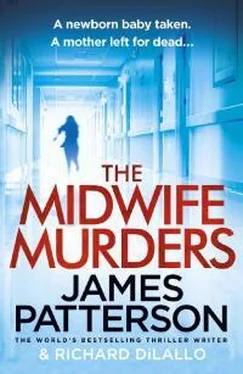Dr. Katz lights one of his signature Tareyton cigarettes. Yes, the CEO lit a cigarette in his own hospital.
“I don’t think you want to be smoking in here, Doctor,” I say to him. He looks at me with silent displeasure. This look of displeasure is followed by an unquestionable look of disgust. Katz is looking and acting like a spoiled little brat. Further proof, he then draws on his cigarette and lets out the smoke with a big satisfied-sounding exhale.
Let’s not even discuss the idea of a medical person smoking! In a group! In a hospital! Should you still doubt that Katz is a nutcase.
“I didn’t know they even made Tareytons anymore,” I say. “When my friends in high school smoked, they always smoked Marlboro Lights. I don’t really remember Tareytons.”
“It’s hard to find Tareytons in New York these days,” says Katz as he emits a big puff of smoke. “I’m lucky enough to have a supplier in London who sends them to me by the case.”
Color me impressed. The asshole is known for his finicky tastes—a framed collection of presidential autographs in his office, custom-made shirts with “exclusive” patterns (whatever that means; they all look light blue to me), English flannel driving caps, which, despite their quality, still make Katz look like a London cabby. ’Op on in, guv-nor.
I say to Katz, “In any case … you should put the cigarette out.”
“In any case,” Katz says, “I’m the CEO in this room, and I want to smoke.”
Blumenthal is seated on the one uncomfortable-looking steel folding chair in the room. I think he’s oblivious to the scene around him. But I turn out to be wrong about that. The detective suddenly looks up—suspiciously perhaps—from his laptop.
“And I’m the cop in this room,” Blumenthal says as he stands up. “Put out the cigarette, Doc.”
There is an unpleasant pause. Then Katz drops the cigarette onto the linoleum floor and begins furiously grinding it out.
Almost immediately the door to the OR opens. A woman dressed in full surgical garb—head covering, surgical mask, protective eyeglasses, gloves, green scrubs—comes into our waiting area. She pushes the eyeglasses to her forehead and unsnaps her mask, then removes it.
I recognize her immediately: she’s a GUH surgeon, one of the best.
She addresses us. “I’m Helen Whall.”
She is as modest as she is talented, so I tell everyone else in the room that Helen Whall is the finest plastic surgeon at GUH, possibly in all of New York City. When a seven-year-old boy in the Bronx had his ear almost severed by a stray bullet, Whall reattached it perfectly. When the mayor had a melanoma on his shiny bald head, Whall was called in to remove and patch it. There really is no one remotely like her.
“Helen, what the hell is happening in there?” Katz asks.
“Please, stay calm, sir. That’s why I’m here. I’ve got an update.”
Why do I feel that things are not going well?
Helen reports, “The patient’s condition is dangerous. Very dangerous. We all suspected that. Turns out that Katra has a small rupture in the uterine wall. Dr. Sarkar is working on that. And, as you no doubt noticed, there’s been a significant loss of blood.”
Katz is growing impatient. “Yes, as we ‘no doubt noticed,’ she’s lost a lot of blood. But is this patient going to live? I’m the one who will have to face the goddamn media.”
Dr. Whall doesn’t answer.
“I asked you a question, Doctor,” Katz says.
Helen Whall looks at Katz with a face that clearly registers restrained anger. Then she returns to her update. “They’re draining the amniotic fluid. They’ve got the placenta out. They need to evaluate the extent of the liver damage. But one thing is clear …” Then she pauses.
“For Chrissake, what the hell is that?” Katz yells.
“The incision they used to take the baby out … is neat and elegant, a traditional bikini-cut C-section.”
“And that means what?” Blumenthal asks.
I decide that I’ll answer the question. “It means the C-section was probably done by a professional.”
“A professional?” Blumenthal asks, only slightly confused.
“Yeah, it was done by a trained professional, a real live doctor. He, or she, cut the mother, delivered the baby, and then left Katra to bleed out and die.”
Dr. Whall waits for us to register the horror of the information. After a few seconds, she says, “Dr. Sarkar and his team are still guardedly optimistic. Thanks, everyone,” and she leaves.
Leon Blumenthal walks over to me. “Tell me,” he says. “Is the use of the phrase ‘guardedly optimistic’ just hospital speak for ‘not at all optimistic’?”
“It could be. But you never know until the operation’s over.”
Blumenthal nods. “Good answer,” he says.
Then I say, “Only the Lord Jesus knows the end of the story.”
“Amen,” says Blumenthal.
I think he smiled slightly. I’m not sure.
CHAPTER 16
TWO HOURS LATER, LEON Blumenthal, two NYPD assistant detectives, and myself are seated around a banged-up metal lunch table in the residents’ cafeteria. This room is no longer a cafeteria. The area has been clumsily transformed into a law enforcement investigation center at Gramatan University Hospital. Clusters of plastic forks and squeeze bottles of ketchup and cafeteria trays have been replaced by computers and wires and files and cameras and TV screens. Eager young residents have been replaced by eager young assistant detectives and NYPD officers.
Blumenthal is talking to NYPD personnel as they stream in and out. I am on my laptop giving updates and fielding questions from Troy and Tracy Anne and other midwife staffers. Katz walks nervously in and out of the conference area. We are all nervous, tired, and essentially ignoring one another. Then, into this insane police center, comes a very important visitor, Dr. Rudra Sarkar.
At this moment Rudi Sarkar is not his usual calm and dapper self. To put it bluntly, Sarkar looks like shit. He is exhausted, sweaty, red-eyed. He practically limps toward the table. His scrubs are splattered with blood. There is blood on his bare upper arms and the V-shaped exposed area of his chest. His disposable paper slippers are bloody.
We all reflexively stand when we see the doctor.
Sarkar says, “I am happy to tell you that Katra Kovac has come through this event very, very well.” He adds, “I think that perhaps the patient’s condition appeared much worse than it actually was.”
I think Sarkar is being modest. Or he’s being crazy. A C-section performed viciously, under unsanitary conditions, without anesthesia … Come on, Rudi, it was a horror show, and this is a miracle. For a moment I think I will say something, but somehow cheerleading and praise seem inappropriate at this moment.
I can hardly wait to get to the recovery room and see Katra Kovac. I know Katz wants to get his PR people churning out their brand of blather to the media. I can only imagine the gangs of reporters roaming outside the hospital.
But one thing I predict is this: Blumenthal must, of course, have his own agenda for continuing the investigation as quickly as possible.
The usually quiet detective spins around like an athlete and faces the group.
And I’m right.
“I … want … your … attention!” Blumenthal is just a decibel short of shouting. Suddenly he moves to his right and looks fiercely at Katz. “Get off the phone … now!”
Katz looks both startled and scared. I don’t think the CEO is going to try to play the CEO card again. He quickly whispers into the phone, “I’ll call you right back.”
Blumenthal lowers his voice just a bit. But the energy and anger are still there. “Listen. This is a doublebarreled investigation. The challenges are … there’s no other word … overwhelming. Okay, our victim lives. Super thanks and congratulations to Dr. Sarkar. That’s number one. That’s great, but it also means that we’ve got a person or persons who need to be brought in for attempted murder, some fucker or fuckers who butchered a pregnant woman. I know everyone is as disgusted and angry as I am. But as you all know, part two of the case is this, and it’s just as bad: there’s another brand-new stolen baby out there. The same pervert who slit open the baby’s mother has that mother’s baby.
Читать дальше












